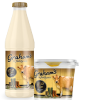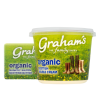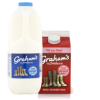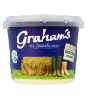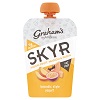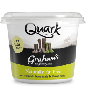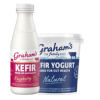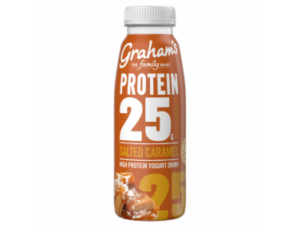

In their second blog for us on gut health, Alana and Lisa from the Gut Stuff talk about some of the different myths they’ve heard on their journey to improve their own gut health. They have made it their mission to empower gut health in everyone and they want to shout it from the rooftops, so they’re working with us to make sure everyone “guts” to know the basics…
I need to get food intolerance tests to decide what I can eat
Nope. While allergies are a different beast, there’s actually very little scientific evidence to show food intolerance tests work! IgG tests are increasingly popular (and expensive), but are actually picking up on the markers in our bodies of repeated exposure to a food, not any proper symptoms! our take home message here would be to save your pennies and try writing a food diary to monitor any symptoms and see if you can find any correlations.
Gut health is about restriction
Quite the opposite (!)…gut health is about ADDING things to your diet. We get lots of inbound queries from people who have restricted their diets so much there is little diversity. There’s a common misconception that to look after your gut you need to restrict the foods you eat – it’s not true. Diversity is king, our gut bugs like to feast on lots of different colours and types of fruit and veg so make sure you’re keeping them happy too.
Sugar is a toxin to your gut heath
Well, we wouldn’t go that far. Certainly refined sugar (think sugary sweets, not the unrefined sugars that naturally occur in fruit) is probably not great for your gut, but more research needs to be done here as noone’s 100% yet as to exactly how our good and bad gut bugs react to the stuff. Sugar is efficiently absorbed in the top part of your digestive tract… This means it doesn’t actually get into the lower part of our gut, where most of the trillions of microbes live and therefore essentially can’t directly affect them. However too much sugar in one go (30g approx 7 teaspoons) means the small intestine can’t process all of it which can result in some taking a trip down to the large intestine which MAY affect the good bacteria in there… so don’t go overboard.
Junk food and ultra processed foods is the real enemy of our microbes, so reducing the amount of emulsifiers and preservatives in your diet is the way to go here. You don’t need to cut anything out completely.
You can only get live cultures through expensive supplements
So back to basics (and a bit of science): A probiotic is a live microorganism that, when eaten/drunk in adequate amounts, confer a health benefit on the host (you!). Probiotics can be in food or in supplement form but not all probiotics are created equal – different strains have different effects, and some might have no effect at all, it all depends on the individual. Science is still learning exactly how different strains work so watch this space.
Foods containing probiotics include kefir, kimchi, sauerkraut, miso and kombucha. Try getting a mix of different types across the course of your week (we like to experiment with Kefir and use it in sauces, on cereals and just plain old drinking it straight from the bottle).
The gut is just my stomach
We thought this too! But take a journey back into your old biology lessons with one of the the coolest scientists we know Ruari Robertson – check it out here.
An excellent general rule for myth busting is to keep your peepers out for things that claim to be a magic bullet or for someone who claims to know EVERYTHING around the microbiome – we are literally only just scratching the surface in this area of research. If it seems too good to be true – it definitely is…

